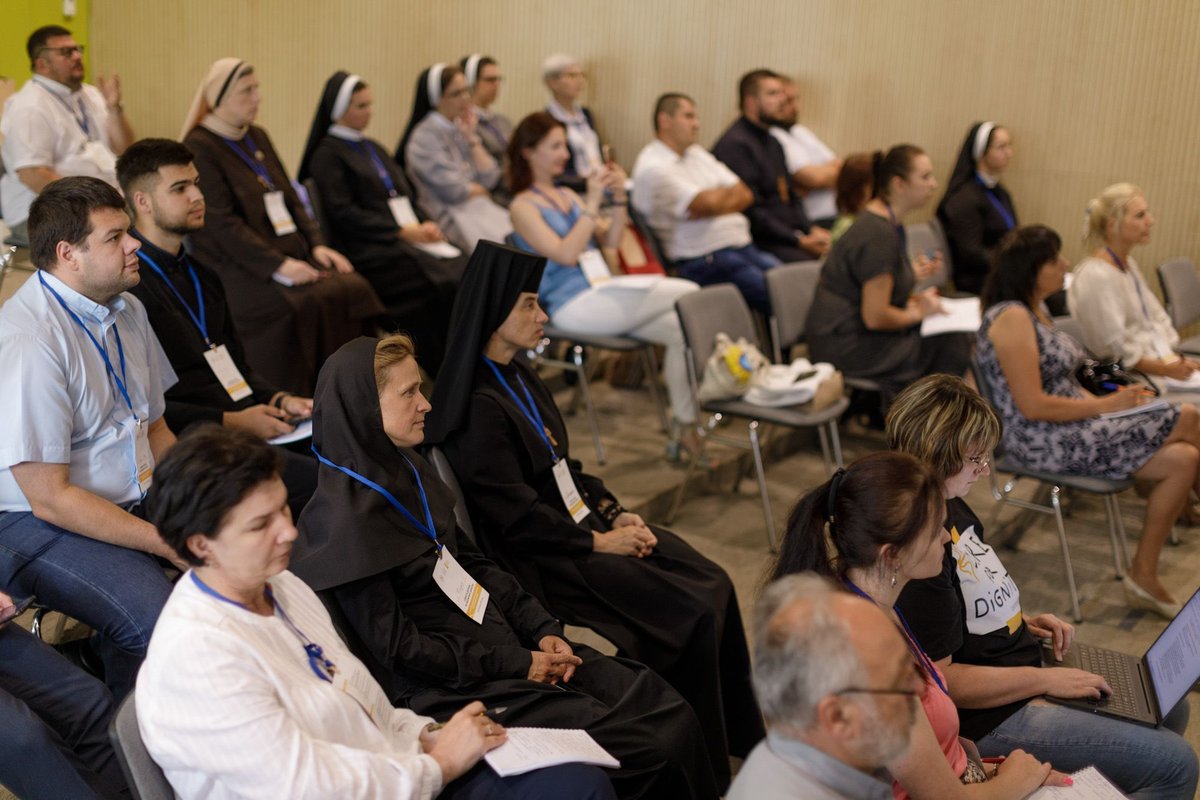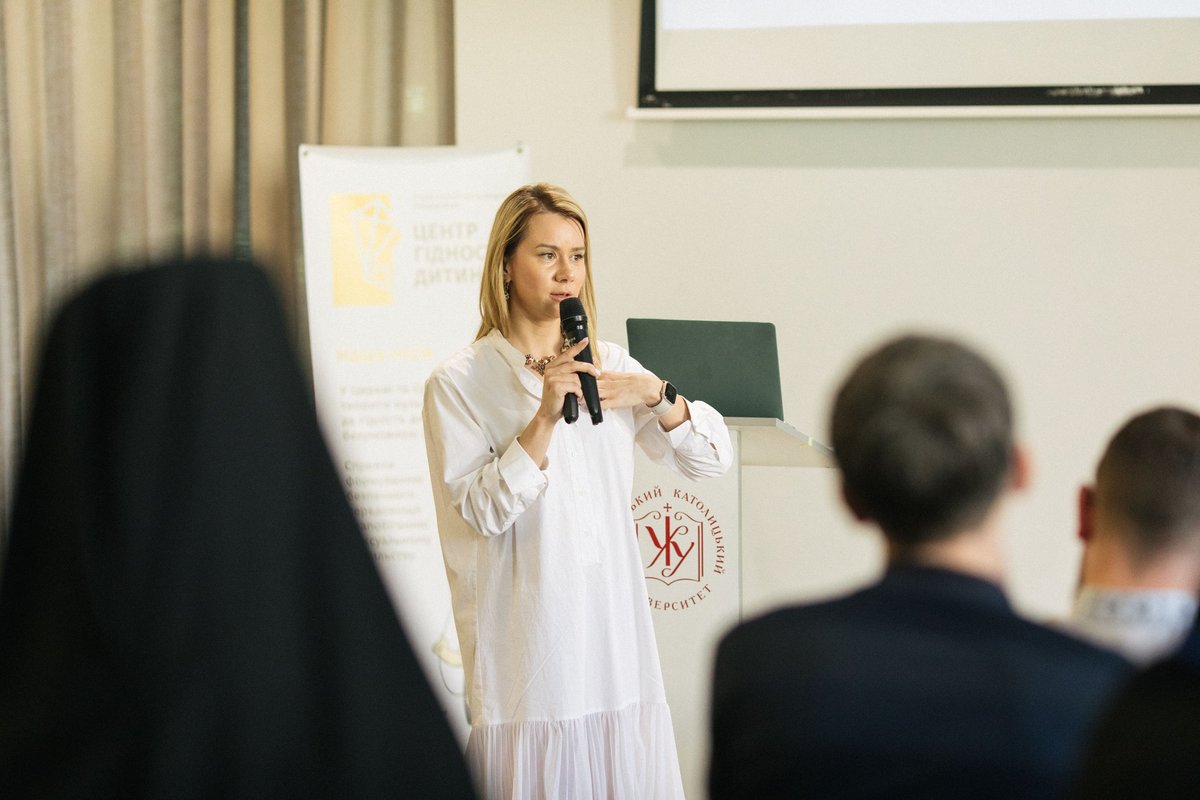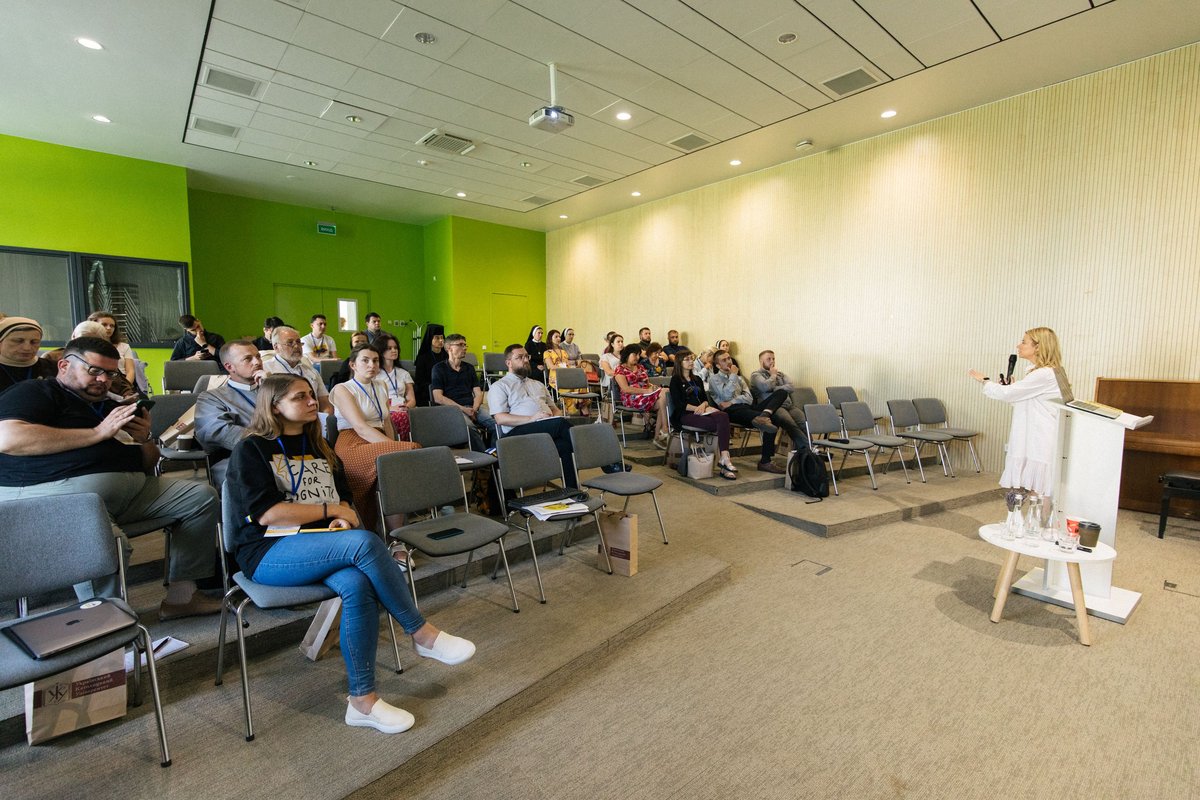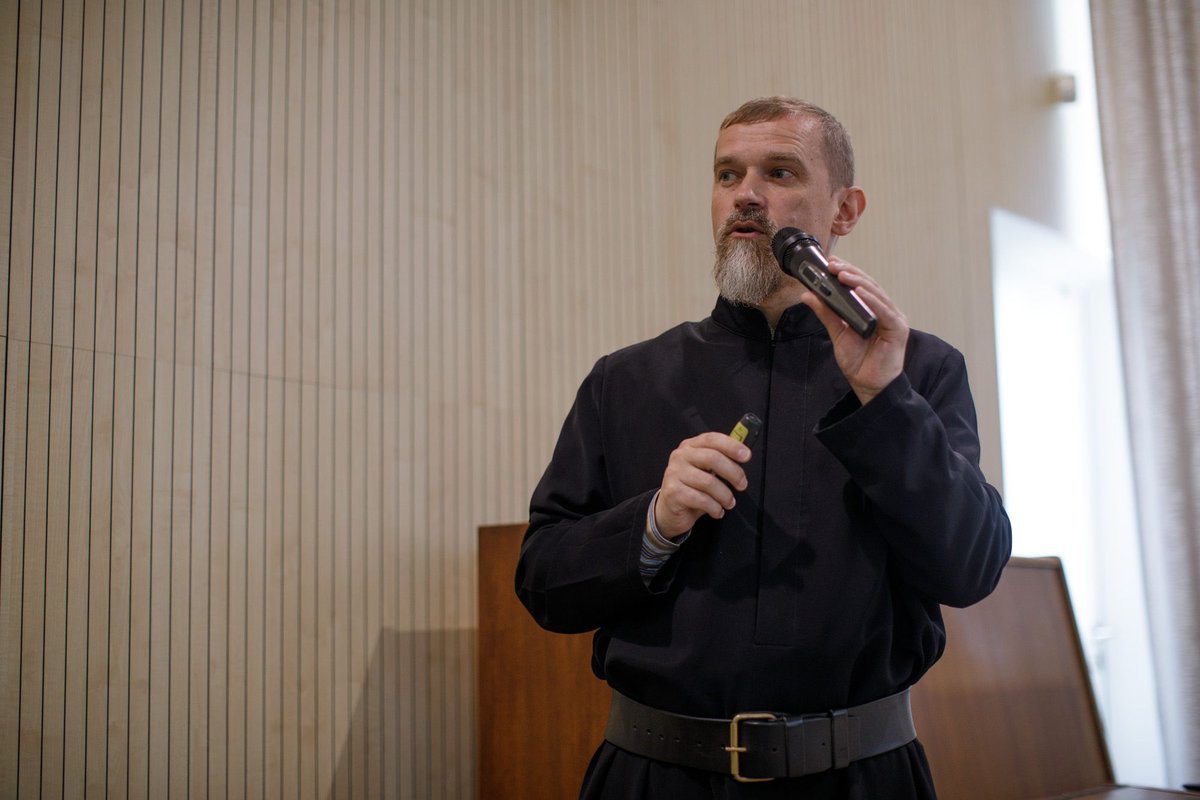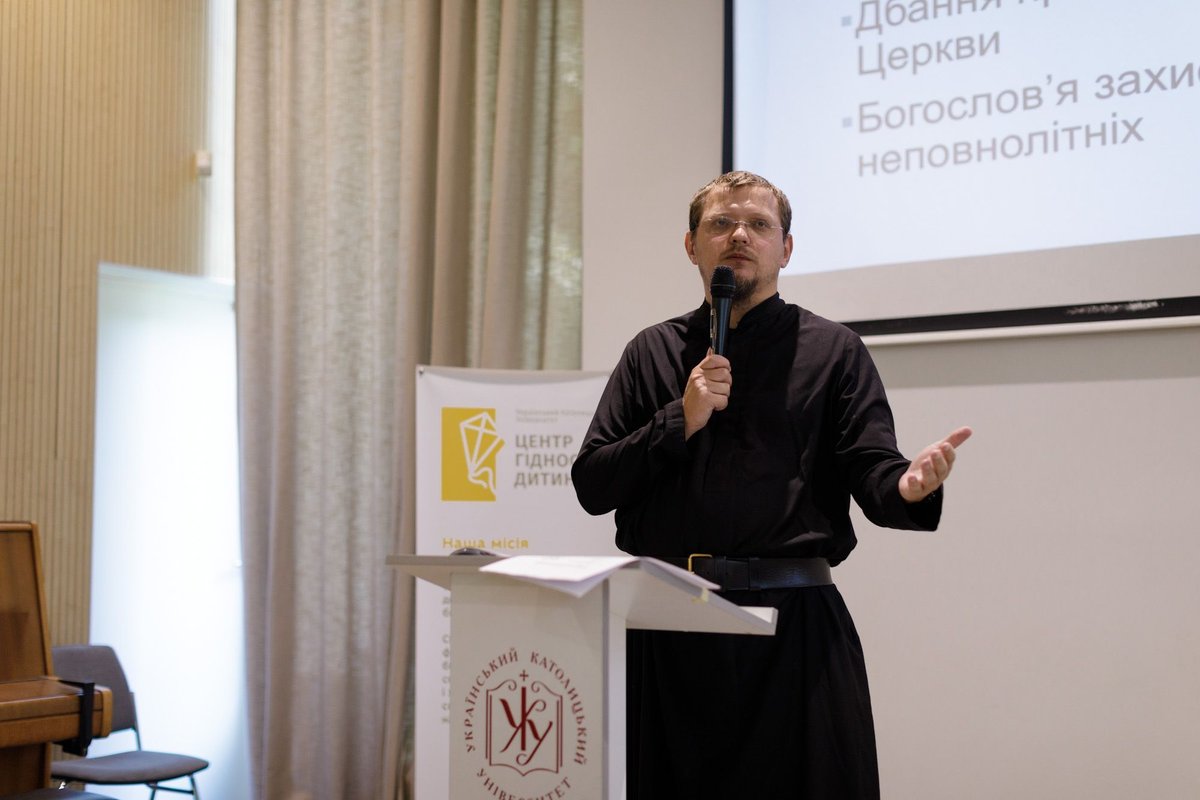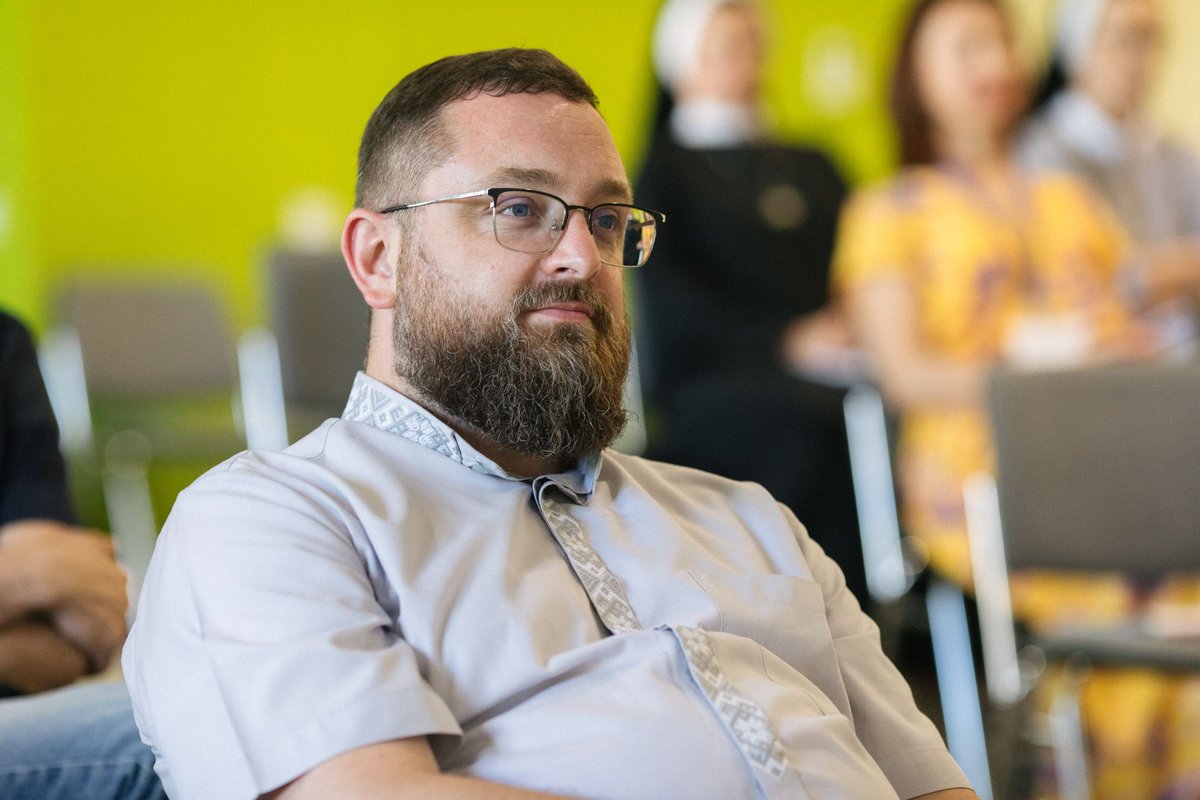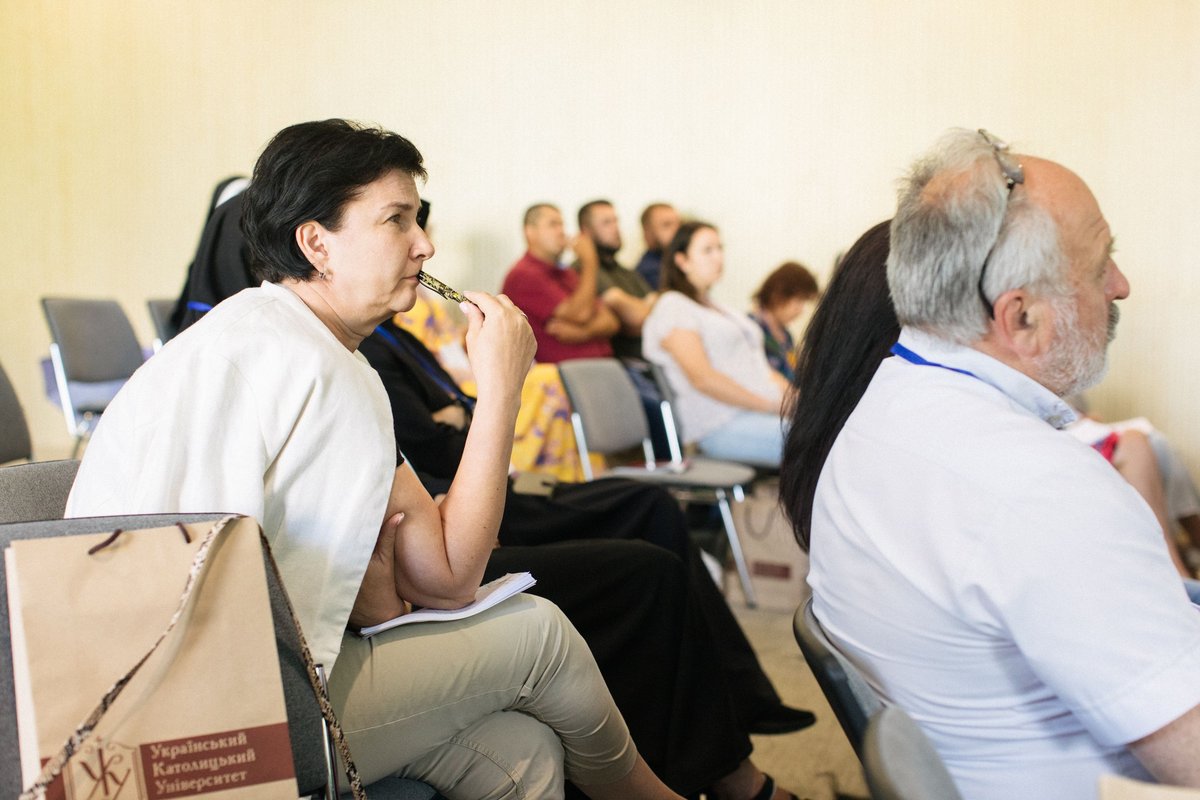"Child's dignity as an unconditional value": a school on combating and preventing violence against children was held in Lviv
During the two days of training, the school participants had 10 lectures from 7 professional experts, who discussed how to work at different levels with children and adult victims of violence, how to recognize the offender and what the Church's mechanism of action is when reporting a crime of sexual violence. They also learned about the Church's experience in preventing sexual violence, crisis communication in identifying such cases, and had the opportunity to work on cases of abuse.
What everyone who works with children should know about
In recent years, the UGCC has been paying attention to child protection issues and has taken important steps to work with children and vulnerable people. And now, at the level of each diocese and exarchate, responsible persons have been appointed who are obliged to listen to anyone who may have suffered from sexual abuse by employees and volunteers of the Church. There is also a team to provide psychological and spiritual support to the alleged victim and his or her family.
The entire Catholic Church has its own mechanism for responding to such cases under canon law, which provides for the responsibility not only of the offender, but also of those authorized persons, starting with bishops and cardinals, who have kept silent or ignored the facts of violence against minors known to them.
The Center for the Dignity of the Child of the Ukrainian Catholic University has committed itself to working with the UGCC: to give all adults-priests, religious, and lay people-the opportunity to gain knowledge and tools to nurture the dignity of children.
The Center's team organized the first such School for clergy, religious and laity "The Dignity of the Child as an Unconditional Value" in 2021. This School provides the basic knowledge that everyone who works with children should have and wants to know how they can prevent violence against minors or respond to a detected case in a way that can really help. Over the course of two days, a number of topical issues are discussed with the participants:
- The place of the child in the church;
- the situation with sexual violence in Ukraine, the church's experience in this area;
- the concept of violence against minors and vulnerable persons, types, signs;
- the reality of a child victim and how to talk to them;
- who can be the offender and how we can identify him/her;
- actions in case of detection of violence against children in the church environment - what to do and how to communicate;
- mechanisms for preventing violence and effective crisis communication when cases of abuse are detected.
Four such schools have already been held, and these are the first level schools. The next stage is a second-level school, where these issues are considered in more depth.
On the importance of dignity in times of great upheaval
This year's school began with a welcoming address by UCU Vice President, Father Dr. Bohdan Prakh. He noted how important the word "dignity" is today - for a person, a child, and the Ukrainian state. "In Soviet times, the word dignity was hidden somewhere so that we would not pay attention to it. Today I read an article about how one of the communists in America "confessed" that in the 30s and 40s the communist agents launched a program to infiltrate 1,100 rogue priests into the Catholic Church, who were supposed to do subversive work in the bosom of the Church itself... This was aimed at breaking human dignity everywhere - as a priest, as a child of God, as a member of the Church of Christ through immorality, through a special conscious action, where a special aspect was set to ensure that these priests were engaged in subversive work with children, to break their dignity, and that through these broken young lives, the Church ceased to trust its pastors. .. We see the consequences of this work. It depends on us how much Christ we will give to our children, to our parishioners," the doctor addressed the participants.
And now, when the Church in the West is experiencing a serious crisis, says Father Bohdan Prakh, the emphasis on the dignity of the person and the child is very well placed. In his opinion, this is extremely important in a world where all the concepts that a person needs to grow and multiply God's dignity are blurred.
And now, when the Church in the West is experiencing a serious crisis, says Father Bohdan Prakh, the emphasis on the dignity of the person and the child is very well placed. In his opinion, this is extremely important in a world where all the concepts that a person needs to grow and multiply God's dignity are blurred.
The concept of violence, its consequences for children, how to work with victims of violence
Studies show that the impact of a traumatic event on a child depends on the dose, frequency, and type of trauma, said child psychiatrist Yuliana Maslak. If we are talking about rape, then in the vast majority of cases we will be talking about post-traumatic stress disorder as a consequence. It can manifest itself through the symptoms of re-experiencing the event, the expert explains. "For example, it happens that we ignore a box at home because we know that there is something unpleasant in it. In the case of memories, it can be a person, a sound, an explosion, a sensation that can provoke repeated experiences of traumatic events. We call these intrusions. Experts also use the term "flashbacks" - these are like short videos in which the person returns to. It happens that because of traumatic memories, a person does not feel here and now at all. Adults can have nightmares. Children often play with the theme of trauma.
An important point is the desire to avoid an unpleasant situation. Why do we not want to "open this box"? Because it will be very unpleasant, and we try not to think about it. And with children, it happens like this: a child may suddenly stop going to school, not meeting with friends. Emotional cognitive changes, emotional numbness, or hyper-anxiety appear. Re-experiencing, avoidance of memories, emotional reactions and thoughts about the event are all symptoms of PTSD," the psychiatrist said.
The task of specialists is to help an adult or child adapt and look at the experience calmly. "When you don't know what to do, when you have mixed feelings, remember one phrase: you should always act in the best interests of the child," emphasized Ms. Yuliana.
She notes that a large number of children have stress resistance during traumatic events because children are more adaptive and flexible. However, it also depends on the support and stress resistance of parents and responsible adults who are with the child.
Psychotherapist Oleksandra Nizdran added that when communicating with a child or young person, especially when disclosing the fact of violence, it is important to identify the reactions that are "leading". "If the leading reaction is fear or anxiety, then the principle of interaction with this person will be to take measures to guarantee the person's safety and confidentiality... It is important to say: 'I hear what you are sharing with me, and I hear what happened. I am sorry that you are going through this right now." It is also important to find out whether the person has already sought help and emphasize that in such a situation it is important to take care of their physical and mental health... One of the victim's reactions may also be distrust of others. At such a moment, it is worth showing patience, unconditional support, and finding out the needs of this person. We can "cast a net" so that the person can come to us if they need to: "I see that you have not been in contact lately, spending more time alone. And it is interesting and important for me to understand what is happening to you." But there is no need to put pressure... It is also important where we have this conversation: to make it safe to talk there."
If a child or a vulnerable person talks about what happened to them, it is also important to be a "safe" person - to behave calmly, steadily and speak in a friendly manner, Ms. Oleksandra noted.
She also emphasized that it was important to emphasize that what happened was not the victim's fault. "This is a crime... and those who commit this crime must be punished according to the law."
The main mechanisms for combating and preventing violence in the Church
In her speech, Ivanka Rudakevych, Head of Projects and Programs at the UCU Center for Child Dignity, focused on what is called violence against children, what are its types, and voiced the main findings of the study "Sexual Violence in Ukraine: From Awareness to Protection," which the Center conducted in conjunction with the Fama Research Agency in 2021. "The topic of creating a safe environment for minors and protecting them from violence is very relevant for Ukrainian society, particularly in times of war. A Ukrainian study on the level of sexual violence in Ukraine shows that 23% of Ukrainians experienced sexual violence in childhood, and 4% were victims of rape. This is pre-war data. The war is exacerbating the situation, and we predict that due to the high level of stress and anxiety, the amount of violence in society will increase, it will be normalized, and it will also be directed at children," predicts the head of projects and programs at the Center for Child Dignity.
"Our Center was established at the initiative of the Synod of Bishops of the UGCC in 2019 in response to the document "Vos estis lux mundi" (The document establishes new procedural norms to combat sexual abuse and ensures that not only offenders but also bishops and rectors are held accountable for violence against minors committed in the church context - ed.) And according to it, each church should create a structure that will respond to sexual abuse of minors and vulnerable persons. And the Synod of the UGCC, by creating the Center for the Dignity of the Child in 2021, took a preventive step. Our mission is to create a culture where the dignity of the child is an unconditional value, to create a safe environment for the child and to prevent sexual abuse," said Ivanka Rudakevych.
The rector of the Lviv Theological Seminary of the Holy Spirit, Dr. Ihor Boyko, also addressed the participants. He spoke about the place of the child in the Church and the vision of a child-friendly Church. Father Ihor is a delegate from the Synod of the UGCC on Minors. "In all our dioceses we now have responsible persons for accepting reports if there are certain abuses. My task is to be an intermediary between these persons, between the Center for Child Dignity and the Synod of Bishops."
Now, in times of war, it is especially important to clearly understand where the danger may be and how to avoid it. However, if an emergency has already occurred, it is necessary to respond accordingly, says Auxiliary Bishop of the Ternopil-Zboriv Archeparchy of the UGCC, canonist Bishop Theodore Martyniuk. He is convinced that this will, firstly, restore a sense of security to both the victim and society, and secondly, prevent harm in the future.
The bishop familiarized the audience with a list of sexual crimes against minors and vulnerable persons, which, according to Church documents, are called crimes against the Sixth Commandment of the Decalogue. He also explained the responsibility of church employees and volunteers if they commit such crimes. He described the mechanism of action in the UGCC when reporting crimes of sexual violence and provided a list of those persons against whom criminal proceedings may be initiated. These include bishops, priests, and deacons, members of institutes of consecrated life or societies of apostolic life, moderators of associations of believers and lay people who exercise some kind of government in the church.
The issues of responding to cases of abuse are regulated on the basis of documents: "The Code of Canons of the Eastern Churches, the Protection of the Holy Sacraments, updated in 2023, Moto proprio "You are the Light of the World," and Vademecum of 2022. In the context of the UGCC, the algorithm for responding to violence, as well as the steps to prevent such cases that each (arch)eparchy and exarchate must take, are spelled out in the document "Norms and Principles for the Protection of Minors in the Pastoral Activities of the UGCC of Ukraine."
The church divides crimes against the Sixth Commandment of God into two groups.
First. Crimes that are investigated exclusively by the Vatican, namely the Dicastery for the Doctrine of the Faith, the body that is competent for those crimes. Only the Dicastery considers these crimes and punishes them. Such crimes include those committed by a bishop, priest or deacon.
- With a minor (under 18 years of age), the clergyman's ignorance or mistake about the age of the minor is not considered either a mitigating or exempt circumstance;
- With an adult who has an intellectual disability;
- Acquisition, possession, display or distribution by a clergyman of pornographic images of minors under the age of 18 for sexual gratification or commercial purposes in any manner or medium.
The second group is a crime against the Sixth Commandment committed by a bishop, priest, deacon, member of an institute of consecrated life or a society of apostolic life, moderator of an association of believers, layman who has the dignity or performs any government or task in the Church.
- Coercion by force, threats, or abuse of power or coercion of someone to perform or participate in sexual acts when the victim is an adult;
- Performing sexual acts with a vulnerable person;
- Immoral production, presentation, storage, or distribution of pornography with minors or persons with intellectual disabilities in any way or by any means.
The Church has no police, prisons, or punitive bodies, Bishop Theodore concludes. "But the responsibility for committing crimes involves not only reduction to the lay state, but also excommunication, which prohibits the reception of any sacraments."
Hieromonk-psychologist Sava Masnyk shared with the audience his knowledge of the Church's experience in preventing and intervening in cases of sexual abuse of children.
He also spoke about how to properly talk to the victim and the offender: "When I faced this, I had aggression towards these offenders, but it was destructive. Now I care about these victims." He explained that our attitude towards the victim is very important, and it is evident from the first meeting. It is very important not to judge the person and to listen to him or her with respect. "God forbid, at the beginning we should say: 'You have to forgive him [the offender],' because this is spiritual violence - it is closing our mouths. When the victim goes through the process of healing, then you can say: "How do you feel about forgiving?" Fr.
The next speaker, Olena Kulygina, taught the school participants how the diocesan community should communicate with the outside world if a case of sexual abuse of minors by a church employee or volunteer is discovered. Communication in a time of crisis requires teamwork, skillful response, the ability to take responsibility and not to keep silent about problems that will become apparent.
At the end of the training, the participants received a practical task: they had to analyze cases of sexual abuse and present an algorithm of actions in response to each case to the audience and experts.
At the end of the course, we asked the participants to share their impressions of the School:
Father Ruslan Sidelnyk:
"I am glad that such a school is held with the participation of not only the clergy but also the laity. Because certain topics have long needed to be discussed. And now, when we are facing problems and when the problems of supernaturalism come out, we as a church should have been ready earlier. I think that the training will make a contribution, because knowing who to turn to, who to talk to, how it should look like, is part of our responsibility - Christian, priestly, lay."
Maria Fedorovska, catechist:
"This school was a revelation for me, because I have never encountered such issues anywhere, but only heard that there is abuse, that violence can occur in the Church. And these cases came as a shock to me. That is why I believe that such a school is needed, and as many consecrated people, priests, and lay people as possible should be involved in it. We need to communicate all this to parents, to have conversations with children about the curriculum in order to set boundaries. The school is very cool, I've been delighted these two days. I'm already signing up for the second level."
Ivanna Kotovych, catechist:
"I think this school is very timely. Because we thought that we don't have such problems, that somewhere in the West we do. And we, like ostriches, hid our heads in the sand. It was useful for me. And I think our society is ready to accept such information. We don't know how to talk to children about this properly, and the Center for Child Dignity puts the right "flags" so that it is not with the aim of crippling the child's psyche, but to set priorities correctly. And I thank God that such an initiative was taken.
